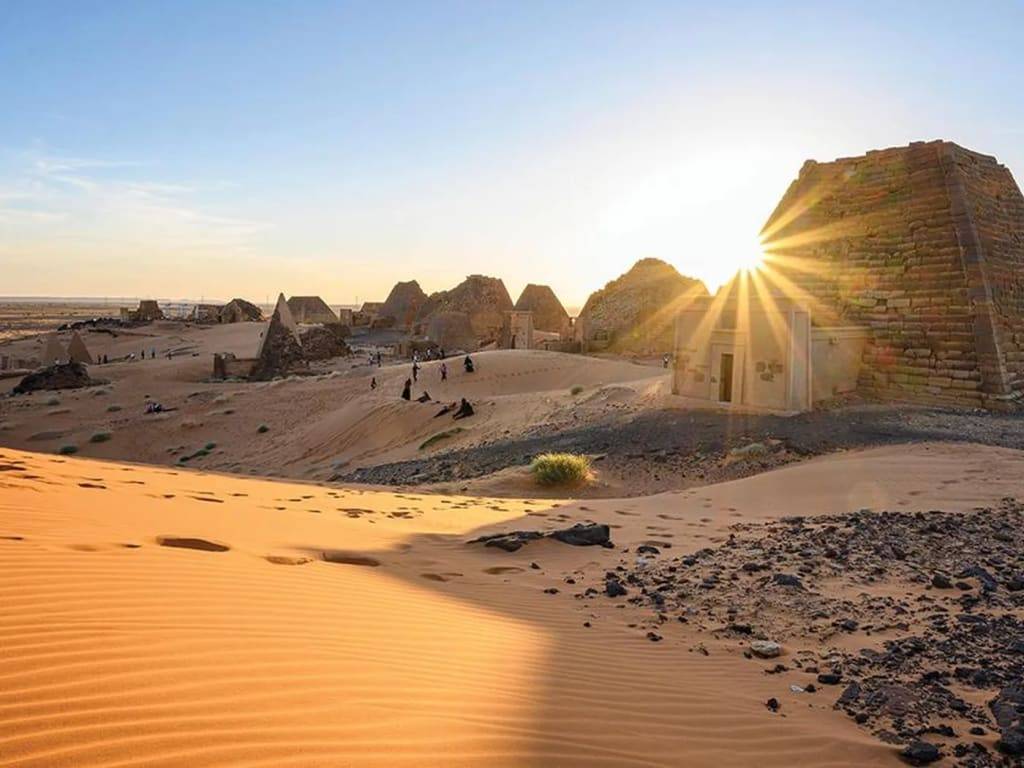The Nile River is the longest river in the world, flowing over 4,000 miles through northeast Africa. For millennia, it has been the lifeblood of civilizations along its banks. One of the most influential was the kingdom of Nubia, centered in modern-day Sudan.
Nubia was ruled by the legendary black pharaohs, who conquered Egypt around 750 BC and established the 25th dynasty. For over a century, Nubia controlled an empire stretching from Sudan to the Mediterranean. The black pharaohs built monumental temples, pyramids and cities along the Nile. Their capital was at Napata, near present-day Karima in northern Sudan.
Here the pharaohs worshipped the god Amun and claimed divine descent to legitimize their rule. At Napata and other Nubian cities like Meroë, they erected small but incredibly steep pyramids. The kingdom grew wealthy from controlling trade routes across the deserts to the Red Sea and central Africa. Nubian culture would influence Egyptian art and architecture for centuries.
After the fall of the 25th dynasty around 650 BC, Nubia remained powerful for another 1000 years before declining. But the Nubian civilization had endured for over 2500 years, leaving behind incredible archaeological treasures. Their pyramids, tombs and temples were abandoned and forgotten, buried under the desert sands along the Nile.
In the late 1800s, Sudan fell under British control. But in 1881, a Sudanese Islamic leader named Muhammad Ahmad proclaimed himself the Mahdi, a messianic redeemer. He led his followers, known as Dervishes, in a jihad against the British. This Mahdist revolt seized much of Sudan.
In 1898, British general Herbert Kitchener led an army up the Nile to crush the rebellion. Kitchener relied heavily on riverboats to move troops and supplies. He defeated the Dervish forces at the battle of Omdurman outside Khartoum, cementing Britain's control over Sudan.
The Dervishes were no match for British maxim guns and artillery. Thousands were mowed down in frontal attacks. It was an infamous massacre, with only 48 British losses compared to over 25,000 Sudanese dead. The battle of Omdurman marked the ascendancy of modern weaponry over mysticism and spear.
But the Mahdist spirit lives on in Sudan today. Each Friday at sundown, the Whirling Dervishes of Omdurman perform their hypnotic dance. As they spin in flowing robes, they seek to transcend earthly existence and achieve spiritual ecstasy. The dance descends from how the Dervishes prepared for battle in the Mahdi's day.
The Nuba people of southern Sudan also preserve ancient traditions. They practice a form of ritual wrestling that was likely used to train Mahdi's warriors. Before bare-knuckle bouts, the wrestlers cover themselves in white ochre and perform chants to intimidate their opponents.
These cultural practices remain a source of pride and identity for Sudanese seeking meaningful independence after colonialism. Both the Dervishes and Nuba wrestlers draw on historical Memory and mysticism against external domination. Their traditions are rooted in the Nile valley stretching back thousands of years.
The Nile remains essential to the civilizations it nourished, as Egypt and Sudan would not exist without it. For British officer Winston Churchill, who fought at Omdurman, the Nile was Sudan's past and future: "Without the river none would have started; without it none would have continued; without it none would have ever returned."
The Nile gave rise to Africa's earliest kingdoms and still sustains millions today. Its waters linked the black pharaohs of Nubia and the Dervishes who battled Kitchener. The river carries mysteriously and memory, joining the region's ancient landscapes and diverse peoples over millennia. The Nile has been Sudan's source of life, power and identity since before history was written.



No comments yet
Be the first to share your thoughts!